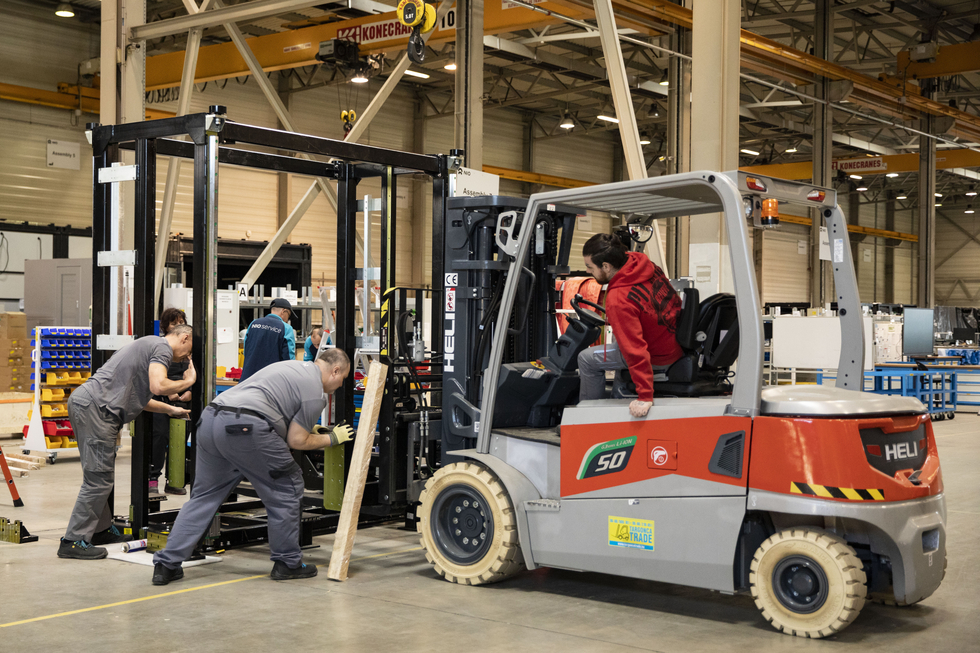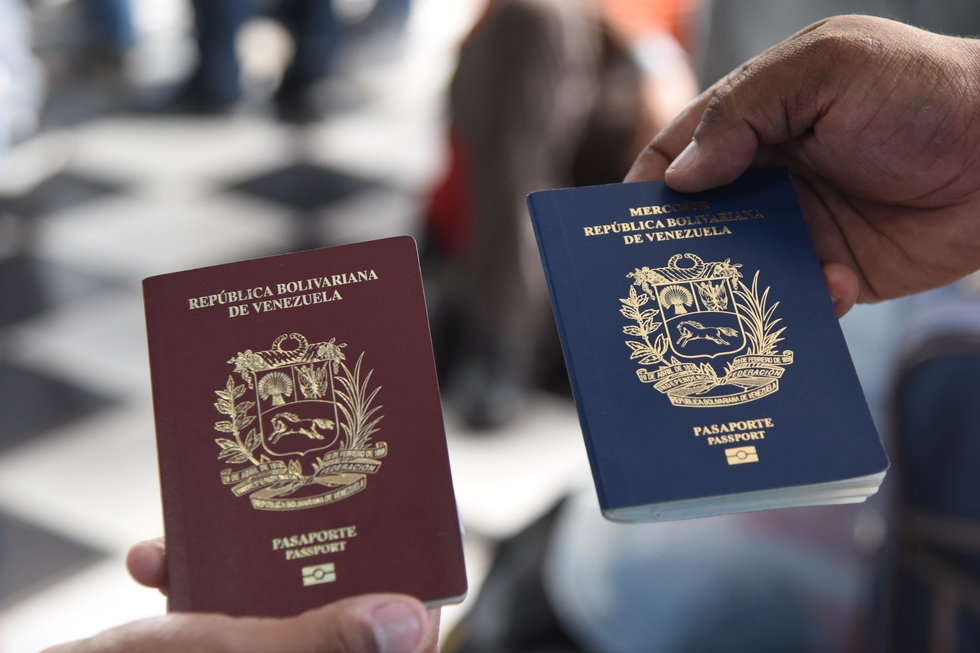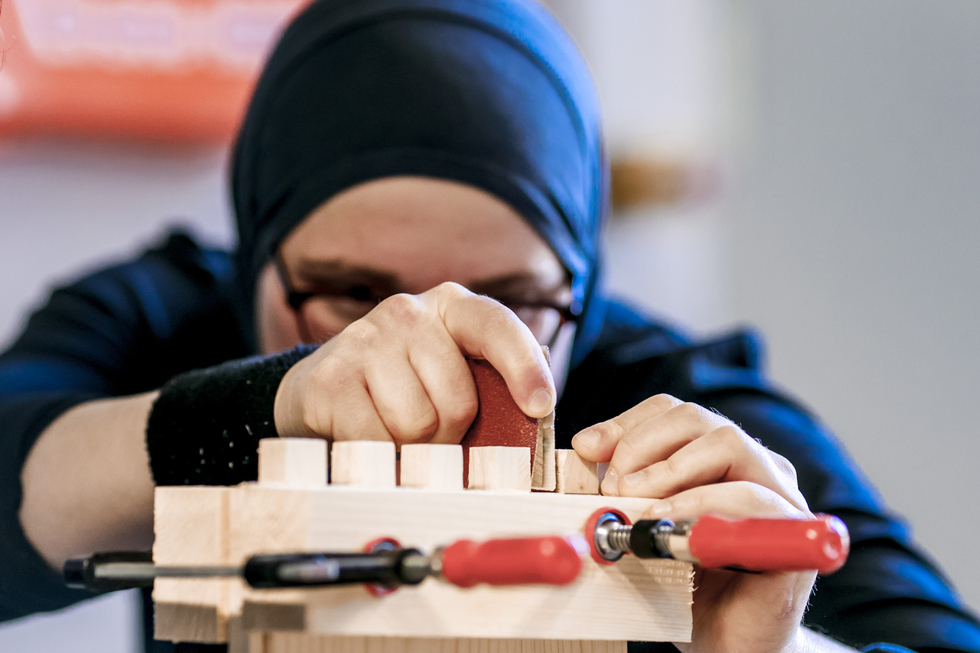“Without labour migration, our society will not have a sustainable future!”

Over the years, you have worked for the FES in a number of different locations, both in Germany and abroad. Can you think of a specific encounter or event related to the topic of migration which made a particularly lasting impression on you?
It has now been almost exactly 23 years since I witnessed the end of Angola’s protracted civil war while working there as the FES country representative. It became possible to visit parts of the country that had not been accessible before, albeit under treacherous conditions. It was horrifying to see the conditions that displaced people had to endure. The humanitarian conditions were extremely precarious. In the towns and cities, too, the number of internally displaced people continued to rise over time, yet there was still no proper plan in place to manage the situation. As in other parts of the world, the majority of internally displaced people and refugees in Angola either remain close to their place of origin or flee to neighbouring countries. It is important that we support them in these areas and work to improve their prospects.
Strengthening democracy is one of the Foundation’s key objectives. How does this translate into supporting individuals who are forced to leave their home countries for political reasons and seek to build new lives in Germany?
The Foundation has been working on the topic of migration since the 1970s and 1980s. At that time, our focus was primarily on the situation of what were known as “Gastarbeiter” and their families. These migrant workers faced multiple challenges due to a lack of language and education policies. In light of this, migrant communities became a new target group for the FES, with a particular emphasis on female immigrants, as illustrated by our research project on the social conditions of migrant and other women in North Rhine-Westphalia conducted in the mid-1980s.
As a result of increasing wars and conflicts, 2015/2016 saw the number of refugees around the world soar. Around two million people fled to the EU, the majority from Syria, Iraq and Afghanistan. In response, we concentrated our efforts on the issues of refugees, migration and integration. For example, we expanded our support for volunteers assisting refugees and for the refugees themselves. We incorporated a number of different activities into our programmes, such as introductory seminars on asylum law, networking opportunities for volunteers, training courses for primary school teachers, and seminars on the democratic system in Germany offered in Farsi or Arabic.
Of course we are continuously adapting our projects and programmes to the given political context. From 2022 onwards, for example, our attention increasingly shifted to Russia’s war of aggression in Ukraine. One of the main focuses of our policy advice work has been – and will continue to be – to determine what form a progressive migration policy might take, especially when it comes to the fair recruitment and successful integration of skilled workers.
The Foundation’s Solidarity Fund, founded in 1971 to support refugees and persecuted individuals, is a particularly important initiative, which is largely funded by former scholarship-holders and alumni. In response to increased refugee migration, in 2017, the FES adapted the selection criteria and application process for the fund. We are proud to say that around 25–30 per cent of today’s scholarship-holders are from migrant communities.
Migration is a transnational issue in the truest sense of the word. Addressing it in a sustainable way requires thorough reflection and discussion, not only at the European level but also globally. To what extent does the Friedrich-Ebert-Stiftung utilise its networks, both national and international, to tackle the issue in an interdisciplinary manner and generate political momentum?
Migration and integration policy have polarised German society over the last 30 years like no other issue. On the one hand, we need immigration. Society is aging and the economy is suffering from a shortage of skilled workers, meaning recruitment is urgently required to maintain prosperity and secure our future.
On the other hand, as a result of global crises, we are seeing an increase in refugee movements, which are also being clearly felt in Europe – and Germany is no exception. These refugees encounter a growing “migration fatigue” within the population, something which is deliberately stoked by right-wing forces. Migration is often blamed for problems in other areas of society and political life. It shows just how close social, education and healthcare systems already are to breaking point after years of austerity. This is most evident at local level, where the at times high levels of debt, crumbling public infrastructure and housing shortages are the actual reasons behind the discontent.
This complex challenge can only be addressed through cooperation at the international, European, national and local levels. And this is where the Friedrich-Ebert-Stiftung comes in. We regularly bring important actors together in discussions on different levels, as we did at our international conference “Migration – A Progressive Formula” in September 2024, as well as through the related series of articles. A forward-looking asylum and migration policy requires a coherent, multidisciplinary approach that considers the needs of local authorities while ensuring systematic cooperation across government departments and within Europe more broadly. If you would like to stay up to date on these issues, I recommend you take a look at our online portal.
Human mobility is one of the drivers of change worldwide. In your view, what are the three most important steps to ensure that this change fosters social progress rather than division?
- Understand and recognise the contribution that immigrants make to our society. This includes having an open discussion about how demographic change impacts our economy and public finances. Without labour migration, our society will not have a sustainable future.
- At the same time, I would like to see us stop equating migration with terrorism and crime. Closing borders or suspending family reunification does not prevent radicalisation.
- Massive investment in our local communities is needed, as is the provision of human and financial resources to foster integration and prevent conflict over resource allocation.
In your opinion, how important is it for diversity – particularly in terms of employees from migrant communities – to be reflected in the Foundation’s workforce?
Diversity is essential for understanding the different perspectives that exist in society. Especially when it comes to social cohesion, we have to identify potentially conflicting interests and address them in a constructive manner. Civic and political education as well as communication with specific target groups must be able to reflect the many different perspectives that exist. This is why we are committed to making diversity an even greater priority in our recruitment.
The interview was conducted by Annette Schlicht.
About
Sabine Fandrych has been Secretary-General of Friedrich-Ebert-Stiftung since July 2021. Dr Fandrych studied political science, ethnology and Portuguese linguistics at LMU Munich. She completed her doctorate at the Institute for Political Science, University of Hamburg in 2000. From 2000 to 2007, she was head of the Friedrich-Ebert-Stiftung office in Angola and Ethiopia, among other roles. In 2010, she joined the Foundation in Germany as head of the FES office in Baden-Württemberg. From 2017 to 2021, she headed the department coordinating the FES Political Academy in Bonn.



